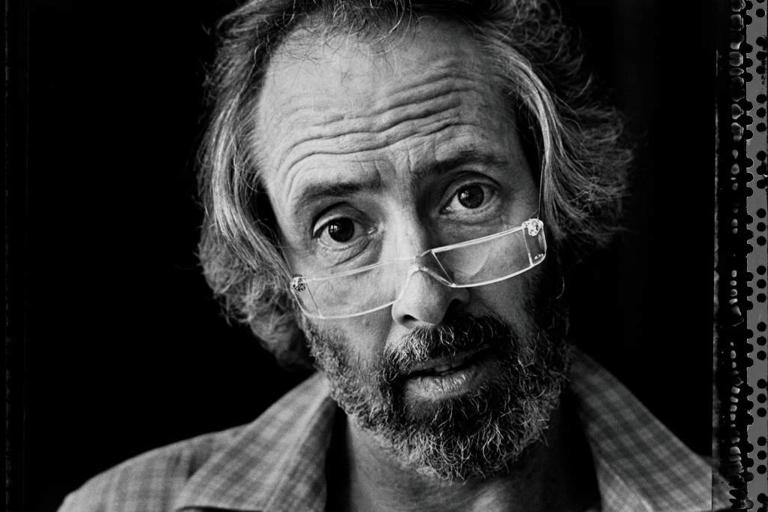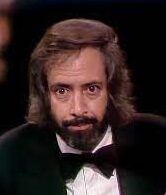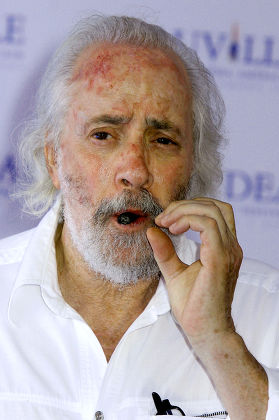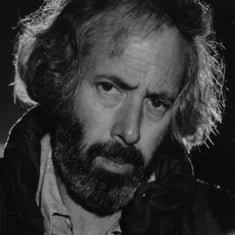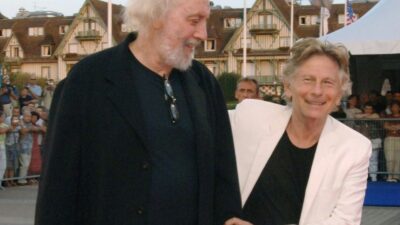This week we lost yet another vital screenwriter. In light of the deaths of William Goldman and now Robert Towne, it seems the great screenwriting community is in serious danger (let’s hope Lawrence Kasdan and John Sayles manage to hold on a bit longer).
Like Goldman, Robert Towne was a rare example of a figure whose legendary status in the industry is fully justified. His areas of expertise included structure, incident and dialogue—all the things, in short, that make up a quality screenplay. He was raised, like Quentin Tarantino, Cameron Crowe, Paul Thomas Anderson and John Milius, in Southern California, a region Towne utilized to its fullest, which brings up yet another standout element of his writing: a strong sense of place.
Towne, as with seemingly every noteworthy filmmaker of his generation, got his start with Roger Corman, a man who certainly had an eye for talent (for those who don’t know, Corman also gave early jobs to Francis Ford Coppola, Martin Scorsese, Peter Bogdonovich, Jack Nicholson and Joe Dante). That gave him a solid, and I’d say necessary, grounding in genre cinema (something that would have benefitted director Hugh Hudson, who in 1984 bowdlerized a Towne scripted Tarzan pastiche in the form of GREYSTOKE: THE LEGEND OF TARZAN, LORD OF THE APES)—see Chris Alexander’s 2023 volume CORMAN/POE, which entertainingly details Towne’s contributions to Corman’s 1964 opus THE TOMB OF LIGEIA.
Another book to check out is THE BIG GOODBYE by Sam Wasson, which recounts the filming of Towne’s signature screenplay CHINATOWN (1974), and in so doing reveals the existence of a shadowy collaborator, Edward Taylor, who worked with Towne on it and most (if not all) of his other scripts. An acquaintance dating back to Towne’s college years, Taylor never received any credit for the work he did, allegedly by choice. A full accounting of his contributions would be welcome, but as Taylor died in 2013, that probably won’t be happening (Towne gave the following eulogy at Taylor’s funeral: “Much has been shared. Some of which should not be shared”).
CHINATOWN, the supposed “greatest screenplay ever written” (so claimed Syd Field), is a seminal “how-to” text in film schools (I know I was made to closely analyze it during my student days). That’s despite the fact that the script was and is an outlier, going against the Hollywood writing model via a wildly complicated, impossible-to-easily-summarize narrative, indicating the work of a true visionary who set rather than followed the rules.
CHINATOWN would certainly be one example of Towne’s originality (quite a few hellaciously complex noir-infused period mysteries have followed in its wake, ranging from WHO FRAMED ROGER RABBIT? to L.A. CONFIDENTIAL). THE LAST DETAIL (1973) would be another, a film whose gritty and endlessly profane dialogue (rather tame by modern standards but quite shocking in its day) set the stage for the Coens and Quentin Tarantino. There’s also SHAMPOO (1975), which among other things introduced the blow job-under-the-table gag that became a Hollywood staple in the succeeding decade.
Yet another talent Towne had was for bringing out the best in material originated by others. He was one of the most sought-after script doctors in Hollywood, having contributed to BONNIE AND CLYDE (1967) and THE GODFATHER (1972), although picking out his contributions wasn’t always an easy task; he was said to have worked extensively on the “mutiny” portion of 1998’s ARMAGEDDON, a sequence that in the finished film lasts around a minute-and-a-half. (To be fair, there also existed screenplays, such as Oliver Stone’s 8 MILLION WAYS TO DIE and Paul Brickman’s DEAL OF THE CENTURY, that Towne’s “improvements” admittedly diminished.)
The 1990 Don Simpson-Jerry Bruckheimer blockbuster DAYS OF THUNDER, for which Towne got sole screenwriting credit (although the script, as with most Simpson-Bruckheimer productions, was in fact worked over by nearly every member of the WGA), is neither original nor exciting, but has an appealingly unpretentious focus. It was about, simply, a Nascar driver (Cruise) trying to be the best Nascar driver he can be. Such elegant simplicity is salutary, especially in light of DAYS OF THUNDER’s enormously self-important predecessor TOP GUN (1986).
As with many a successful screenwriter, Towne was aided immeasurably by the many great directors that interpreted his work, including Corman, Hal Ashby, Sydney Pollack, Tony Scott, Brian De Palma and Roman Polanski. The Towne-Polanski collaboration was an especially interesting one, showcasing two talents, one quintessentially American in outlook and the other just as thoroughly European, whose opposing sensibilities had a complimentary effect. That’s certainly true of CHINATOWN, upon which Polanski exerted a not-inconsequential effect on the script (Towne subsequently admitted Polanski was right to make the changes he did), and also Polanski’s 1988 film FRANTIC, to whose screenplay Towne made a number of uncredited contributions that almost certainly improved it.
Of Towne’s own directorial efforts, TEQUILA SUNRISE (1988) fared best. An old-fashioned glamor-infused blockbuster, it was unambitious yet absorbing and always fun to look at, with three exceptionally good-looking stars—Mel Gibson, Kurt Russell and Michelle Pfeiffer—and beachfront scenery, lensed in So Cal’s South Bay, to match. As for his other self-directed films PERSONAL BEST (1982), WITHOUT LIMITS (1998) and ASK THE DUST (2006), they qualify as good tries. Towne never achieved the same excellence as a director that he did in the writing field, but it wasn’t for lack of trying. Individual genius rarely ever manifests itself in more than one field, and Towne definitely had one field locked up. Two weren’t necessary.

